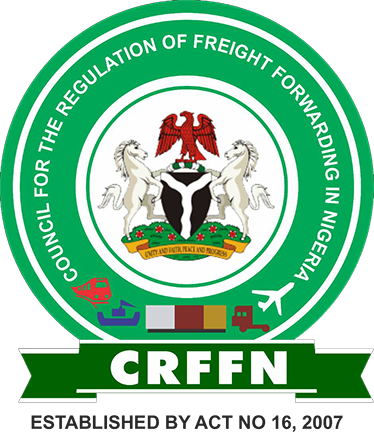
Accredited freight forwarding associations under the Council for the Regulation of Freight Forwarding in Nigeria (CRFFN) have slammed the council following its recent admission of being unable to pay workers for six months, due to a lack of funds, and despite the collection of Practitioner Operating Fees (POF) from clearing agents.
The associations, in a recent chat with our correspondent are now demanding transparency and accountability from the CRFFN, alleging widespread fraud and mismanagement.
The associations lamented that the council has failed to perform its regulatory duties and has instead become a revenue collection body, plagued by corruption and inefficiency.
In a chat with our correspondent, Mr Olumide Fakanlu, the national secretary of the Association of Nigerian Licensed Customs Agents (ANLCA), described the CRFFN as a fraudulent entity from its inception.
He pointed to the resignation of Prince Olayiwola Shittu from the board as an early sign of the council’s corrupt nature.
“CRFFN has evolved into a fraudulent agency over the years. Tony Iju, the pioneer chairman, turned it into a corrupt entity, and subsequent administrations have only worsened the situation. The Practitioner Operating Fee (POF) is just a fraction of the funds they have mismanaged.
“What about the grants they received from the government? What benefits has CRFFN brought to the industry or the Nigerian economy?” Fakanlu questioned.
He further criticized the lack of transparency and accountability in CRFFN’s operations, emphasizing that neither ANLCA nor its members had benefited from the council’s activities.
Fakanlu further call for the repeal of the Act establishing CRFFN and the dissolution of the council.
Speaking also with our correspondent, Segun Musa, Deputy President, Air and Logistics, National Association of Government Approved Freight Forwarders (NAGAFF), highlighted the fundamental issues with CRFFN’s establishment. He noted that the council’s creation was marred by conflicting intentions between the government and stakeholders.
“The government envisioned a council to enhance performance and align with international best practices, but stakeholders sought an agency to improve the sector’s performance. This clash of intentions stranded CRFFN, turning it into another revenue collection body, rather than a regulatory one,” Musa explained.
Musa criticized the council’s election process, describing it as akin to a political election where financial power often trumps competence.
He also condemned the collection of POF through third parties, calling for an audit of the council’s finances.
On his part, Mr Peter Fatomilola, Vice Chairman of the Association of Registered Freight Forwarders Nigeria (ARFFN), asserted that CRFFN has deviated from its regulatory role. He emphasized that the Council should focus on the regulation of freight forwarding, transportation, warehousing, and customs brokers, among other areas.
“The CRFFN is more interested in collecting fees from agents than ensuring their welfare and the proper running of policies. They have never functioned according to their mandate. The council is like a toothless dog, standing there without barking,” Fatomilola lamented.
On his part, Mr Anthony Onyike, Vice President of the National Association of Freight Forwarders and Consolidators (NAFFAC), acknowledged the financial challenges faced by CRFFN, but attributed some of these issues to resistance from certain quarters and partial compliance with POF collection.
“The problem CRFFN is facing is due to people dragging them to court and partial compliance with POF collection. There’s a need to review the percentage collected from consultants and reach an agreement on the way forward,” Onyike stated.















